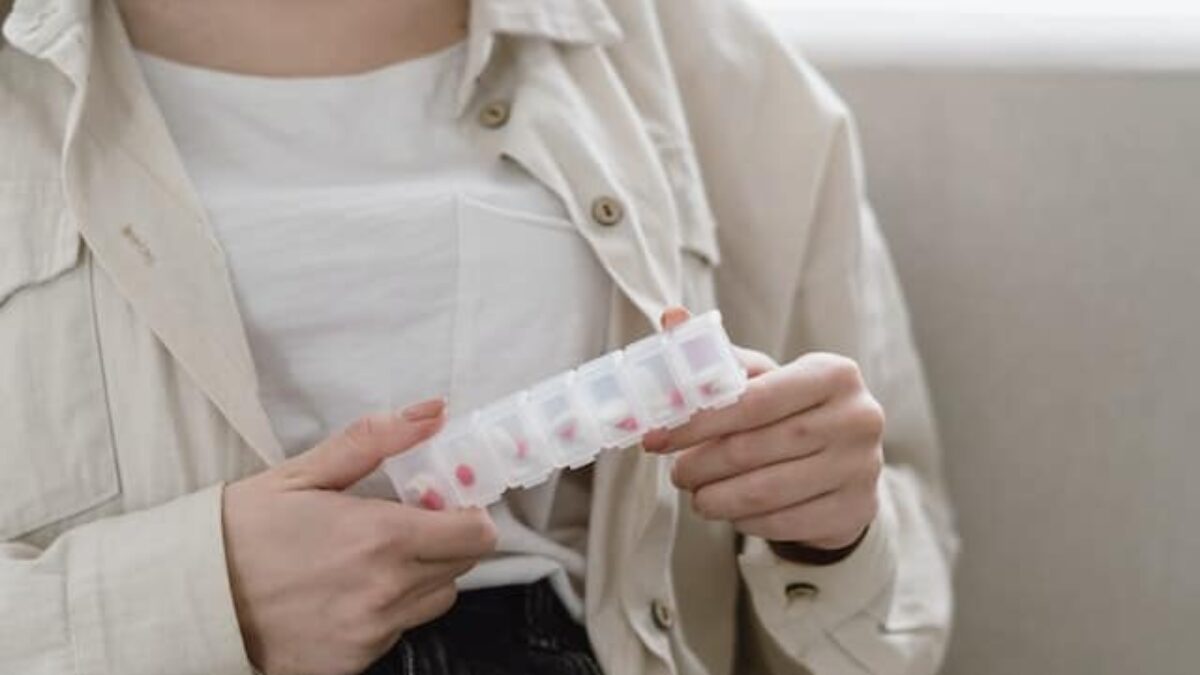Hormonal shifts can influence nearly every aspect of life—energy, mood, sleep, and even your sense of well-being. As more people turn to Hormone Replacement Therapy (HRT) for relief from hormonal imbalances, a new question is making rounds online: can HRT cause depression?
If you’re considering HRT or already on it, understanding how hormone therapy interacts with your mental health is essential. This article explores the emotional effects of hormone therapy, natural support strategies, and what you can do to maintain mental balance during treatment.
What Is Hormone Therapy?
Hormone Replacement Therapy (HRT) is a medical treatment used to supplement the body with hormones that are no longer being produced at sufficient levels. Common forms include:
-
Estrogen therapy (often used in menopause)
-
Testosterone therapy (used for men with low T and gender transition care)
-
Thyroid hormone therapy (used for hypothyroidism)
HRT is commonly used to treat menopausal symptoms, support transgender individuals during transition, and alleviate symptoms of hormonal deficiencies.
How Hormones Affect Mental Health
Hormones play a major role in regulating emotions, stress levels, and even cognitive function. Imbalances in hormones like estrogen, progesterone, and testosterone can lead to:
-
Mood swings
-
Anxiety or irritability
-
Brain fog
-
Depression
When hormone levels drop—such as during menopause, andropause, or postpartum periods—mental health often takes a hit. This is where HRT comes in to restore balance. But can HRT cause depression?
Can HRT Cause Depression?
The answer is nuanced. In some individuals, HRT may help improve mood, while others report new or worsening symptoms of depression after starting treatment.
Why Might HRT Trigger Depression in Some People?
-
Incorrect Dosage or Hormone Type
Not every body reacts the same way to synthetic or bioidentical hormones. An improper dose or the wrong hormone balance can disrupt mental clarity and emotional regulation. -
Underlying Mental Health Issues
Individuals with a history of anxiety or depression may be more sensitive to hormonal fluctuations. In such cases, HRT could amplify pre-existing mental health issues. -
Adjustment Period
HRT takes time to work. During the first few weeks, your body may go through a rollercoaster of emotions as it adjusts, which may cause temporary feelings of sadness or anxiety. -
Individual Biochemistry
Just like any medication, your body’s unique chemistry may not align well with certain forms of HRT.
So, can HRT cause depression? Yes, but it is not common and usually related to dosage, hormone type, or underlying factors. If you’re experiencing depressive symptoms while on HRT, it’s essential to consult your healthcare provider promptly.
Natural Support to Balance Mental Health During HRT
While HRT addresses hormone levels directly, combining it with natural lifestyle strategies can significantly enhance mental health. Here’s what works:
1. Nutritional Support
Diet plays a big role in hormone and brain function. Focus on:
-
Omega-3 fatty acids (found in salmon, flaxseed)
-
Leafy greens for magnesium and folate
-
Whole grains to stabilize blood sugar
-
Limiting processed foods and sugars
These foods naturally support serotonin and dopamine production, helping counter feelings of depression.
2. Herbal Supplements
Several herbs may support mood during hormone therapy:
-
Ashwagandha – reduces cortisol and anxiety
-
Rhodiola Rosea – combats fatigue and mild depression
-
Chasteberry – supports progesterone balance in women
Always consult a healthcare provider before combining herbs with HRT.
3. Exercise and Movement
Exercise releases endorphins and serotonin—both essential for mood balance. Just 30 minutes of daily movement, whether it’s walking, yoga, or strength training, can improve emotional well-being.
4. Mind-Body Therapies
-
Meditation and breathwork to lower cortisol
-
Cognitive Behavioral Therapy (CBT) for mood tracking and emotional control
-
Acupuncture – some studies suggest it can reduce mood-related symptoms during HRT
Post-Treatment Considerations
Once you’re on a stable HRT regimen, regular monitoring is vital. Mental health symptoms can arise even after months of steady hormone levels. Make sure to:
-
Get bloodwork every 3–6 months
-
Track mood changes in a journal
-
Communicate openly with your provider about side effects
-
Adjust dosage only under professional supervision
If you’re still wondering can HRT cause depression, remember: individualized care makes all the difference. What works wonders for one person might not work for another.
When to Seek Help
If you’re experiencing persistent feelings of hopelessness, mood swings, or emotional numbness while on HRT, it’s crucial to seek help. Warning signs to watch for include:
-
Sleep disturbances
-
Appetite changes
-
Loss of interest in activities
-
Suicidal thoughts
These are not normal effects of HRT and should be addressed immediately with your doctor or mental health provider.
The Bottom Line: Can HRT Cause Depression?
So, can HRT cause depression? In some cases, yes. But more often than not, HRT alleviates mood-related symptoms rather than causing them. The key lies in personalized care, monitoring, and natural support strategies that protect your mental health during hormone treatment.
If you’re considering hormone therapy, take a holistic approach. Combine medical guidance with nutrition, movement, and stress-reduction practices. And always—always—listen to your body.



